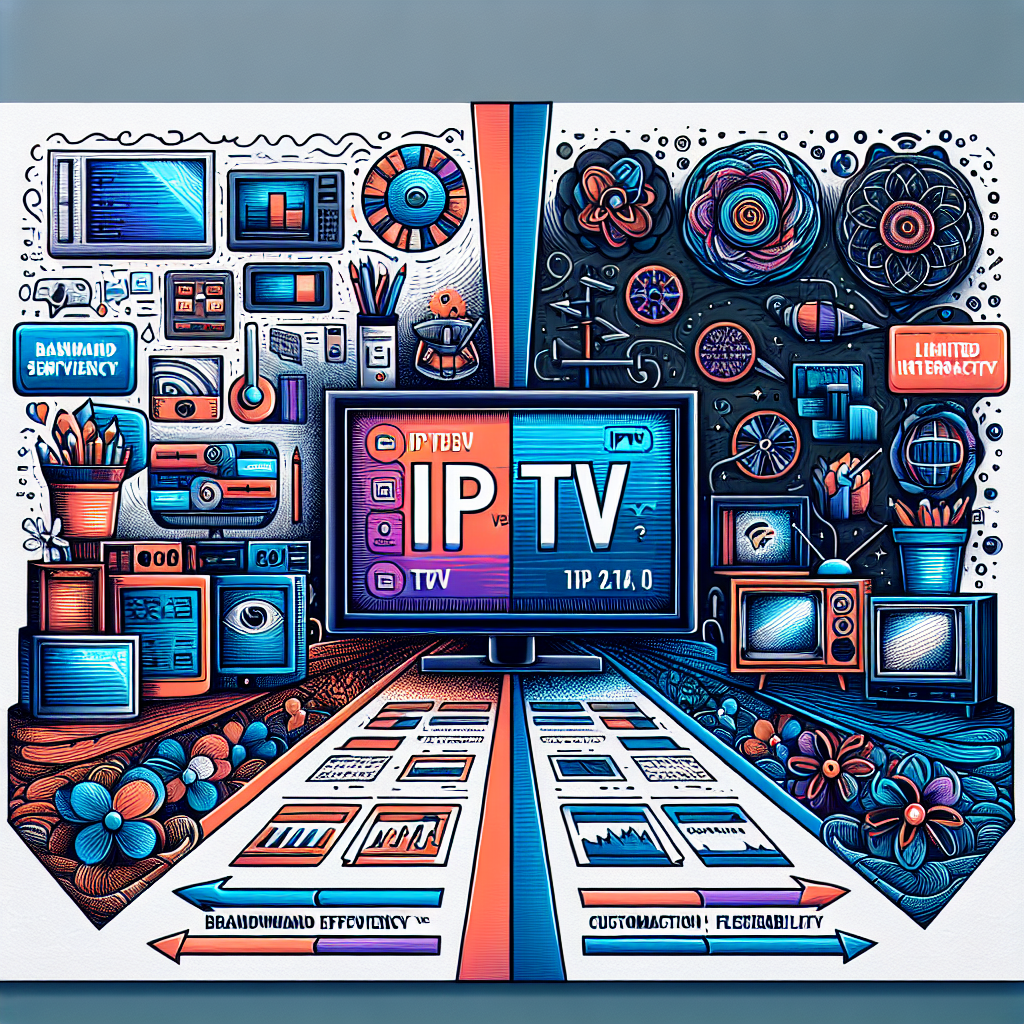Your cart is currently empty!
IPTV vs. Traditional Cable: A Comparison

In recent years, the way we consume television has undergone a major transformation. With the rise of internet streaming services and the increasing popularity of IPTV (Internet Protocol Television), traditional cable TV is facing some stiff competition. But what exactly are the differences between IPTV and traditional cable, and which one is better for you? Let’s take a closer look at the two options and compare them side by side.
First off, let’s talk about what IPTV actually is. IPTV is a technology that allows you to stream TV channels and on-demand content over the internet. This means that you can watch your favorite shows and movies on any device with an internet connection, such as a smart TV, computer, smartphone, or tablet. IPTV services offer a wide range of channels and content, often at a lower cost than traditional cable packages.
On the other hand, traditional cable TV is a system that delivers television programming through a network of cables. With cable TV, you are limited to the channels and packages offered by your cable provider, and you often need to rent or purchase additional equipment, such as set-top boxes or DVRs, to access certain features.
One of the key differences between IPTV and traditional cable is the way in which the content is delivered. IPTV uses internet protocols to transmit content, which allows for greater flexibility and customization. With IPTV, you can choose the channels and content you want to watch, and you can access it from anywhere with an internet connection. Traditional cable, on the other hand, is limited by the physical infrastructure of the cable network, which can lead to restrictions on content and limited options for customization.
Another important difference between IPTV and traditional cable is the cost. IPTV services are often more affordable than traditional cable packages, as they do not require the same level of infrastructure and equipment. Additionally, many IPTV providers offer flexible pricing options, allowing you to customize your package to fit your budget and viewing preferences.
In terms of picture and sound quality, both IPTV and traditional cable can deliver high-definition content. However, IPTV generally offers better picture quality, as it relies on internet protocols that can deliver higher resolution and smoother playback. Additionally, IPTV services often include features such as on-demand content, cloud DVR, and interactive TV, which can enhance your viewing experience.
So, which option is better for you – IPTV or traditional cable? Ultimately, the choice will depend on your individual preferences and needs. If you value flexibility, customization, and affordability, IPTV may be the better option for you. However, if you prefer a more traditional TV experience with a wide range of channels and reliable service, traditional cable may be the right choice.
In conclusion, IPTV and traditional cable both have their advantages and drawbacks. As technology continues to evolve, the line between these two options may become increasingly blurred. Ultimately, the best choice for you will depend on your personal preferences and viewing habits.

Leave a Reply